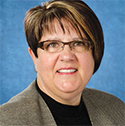Page Content
—CONCEPT AND DESIGN BY RYAN MAJEAU
ATA Programs extend overseas
If you think you’re too small to make a difference, try sleeping in a closed room with a mosquito.
—African proverb
 The long-standing commitment of the Alberta Teachers’ Association (ATA) to international development education, development cooperation, sustainable development and professional development dates back to 1964. That year, Alberta teachers Michael Kostek and Verda Ullman joined their colleagues in Project International, Project Overseas, in Malawi and Kenya. Since then, more than 450 Alberta teachers have engaged in international volunteer work, and more than $4 million has been allocated to the program.
The long-standing commitment of the Alberta Teachers’ Association (ATA) to international development education, development cooperation, sustainable development and professional development dates back to 1964. That year, Alberta teachers Michael Kostek and Verda Ullman joined their colleagues in Project International, Project Overseas, in Malawi and Kenya. Since then, more than 450 Alberta teachers have engaged in international volunteer work, and more than $4 million has been allocated to the program.
The ATA, along with other Canadian Teachers’ Federation (CTF) members, has been credited as a leader working with African, Asian and Caribbean teacher organizations to reach marginalized areas in order to provide inclusive, high-quality education to underserved groups.
Since the early 1960s, the federal government has praised these international teacher-to-teacher development initiatives. Financial contributions from the Canadian Official Development Assistance budgets recognize the contributions made by Canada’s teachers. The Canadian International Development Agency (CIDA) was an active partner, offering financial assistance and consulting with CTF until CIDA ceased funding CTF’s international programs and projects in 2011. (In 2012, CIDA entered into partnerships with major Canadian mining companies with interests in developing countries.)
The negative effect of CIDA’s cuts to CTF programming ($8 million) led to staff cuts at the national level and reduced the overall program. Consolidating programs resulted in a more structured focus, a streamlined and strengthened ability for timely, tangible and responsive cooperation with overseas partners and donors. Today, the support and commitment of CTF member organizations such as the ATA allow the centrepiece—Project Overseas—to respond to changing teacher needs. This past summer alone, 10 Alberta teachers, along with 43 other teachers across Canada, travelled to 13 countries. These teachers, working alongside local co-tutors, provided professional upgrading and mentoring in curriculum content and methodology to meet the needs of undertrained teachers.
The ATA expanded its international cooperation initiatives to include Alberta-based international initiatives and others. Today, the ATA’s international cooperation program comprises four projects under CTF’s international education umbrella. Four other projects are identified as Alberta-based initiatives, while two more include long-standing partners. In 2013/14, $253,800 in international cooperation funding has been earmarked for CTF initiatives: Project Overseas, the Caribbean Union of Teachers Young Leaders Program, the Pan African Teachers’ Centre ITC Website Project, and Pan African Teachers’ Centre Literacy Development in Ghana and Uganda. Funding has been earmarked for the Palliser Dominica IT Project (a joint initiative with Palliser Local No. 19), Tools for Schools, the Africa Foundation, the ATA Me-to-We PD pilot project and the Canadian Women for Women in Afghanistan Lantern Fund. Funding will contribute to the continuation of children’s literacy work in Tanzania with the Canadian Organization for Development Through Education (CODE) and non-sexist pedagogy and leadership training for women in Latin American countries through the work of CoDevelopment Canada.
Every year, the ATA renews its commitment to assist overseas partners. In so doing, we extend the world’s reach by providing equitable accessibility to high-quality public education. Our efforts may appear insignificant in the arena of global development, but statistics gleaned from almost 49 years of ATA involvement in overseas development tell a different story, as do the personal stories that follow.
Together, we continue to make a difference!
Françoise Ruban is an ATA executive staff officer in the Professional Development program area and the ATA’s international officer.
